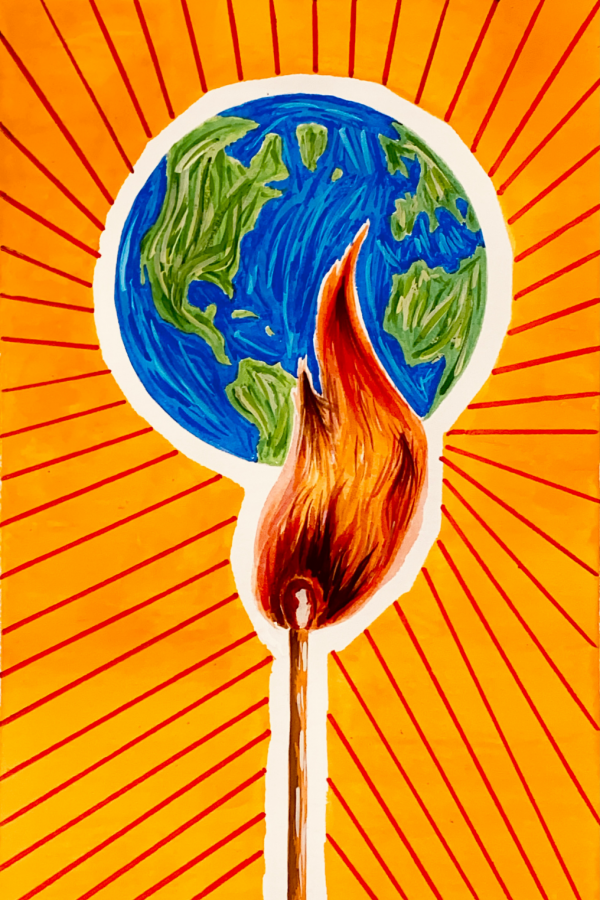Editor's note: This column was submitted to the Texan by a member of the UT community.
By now, the vast majority of us are aware of the mechanics of what is causing the current climate crisis. Humans burn fossil fuels which release greenhouse gases that stick around for a long, long time and trap heat from the sun in our atmosphere. This knowledge isn’t new. So why are emissions still rising year after year? And what can we do about it?
Eleven years before climate change became a public issue in 1988 with NASA scientist James Hansen’s testimony before the U.S. Senate Energy and Natural Resources Committee, an Exxon senior scientist, James Black, told the Exxon Management Committee, “In the first place, there is general scientific agreement that the most likely manner in which mankind is influencing the global climate is through carbon dioxide release from the burning of fossil fuels." One year later he warned, “Some countries would benefit but others would have their agricultural output reduced or destroyed … Present thinking holds that man has a time window of five to ten years before the need for hard decisions regarding changes in energy strategies might become critical.”
In response, Exxon invested in some of the most intensive climate research ever attempted at the time. They worked with the U.S. Department of Energy and university scientists to fully understand what the greenhouse effect meant for our planet. They plunged millions of dollars into developing climate models and studying how quickly our oceans could absorb CO2. And then, they changed course.
One year after Hansen testified before Congress, Exxon helped to create the Global Climate Coalition (disbanded in 2002) to question global concerns over climate change. In the late ‘90s, Exxon, Chevron and others, including various conservative think tanks, launched a PR campaign to make certain that “recognition of uncertainties of climate science becomes part of the ‘conventional wisdom.’” They named the media, policy makers and teachers as targets of this mission to sow confusion about climate change in the general public. In the early 2000s, British Petroleum launched their own deceptive PR campaign to shift blame from large corporations like themselves to the average consumer. This was the popularization of the term “carbon footprint.”
But the science is clear, and we know the issue is not individuals making bad choices. The issue is the system. The issue is that those in power, like Senators Ted Cruz and John Cornyn, and Congressman Roger Williams, who continue to take oil money in exchange for enacting policies that set ablaze our chances of a liveable future. And the issue is that the University we attend supports this industry of death by leasing University land to oil and gas companies and investing University funds into fossil fuel and defense companies that wreak havoc on our environment.
This last week I watched my home state of Oregon burn from afar as friends had to evacuate their homes and deal with the hazards of smoke inhalation. Here in Texas, Austin is set to become a major destination for climate refugees from areas around the Gulf of Mexico affected by sea level rise and increased hurricane frequency and magnitude. Fighting against this crisis is draining, frightening and hard. We’re working to prevent the devastation of the planet that gives us all life, but it gets easier when we realize that the problem is not each other. We can come together and use our collective power to pressure those in positions of leadership to do the right thing. As students at a university that is complicit in and contributes to this global catastrophe, we have more power than we think.
Join Students Fighting Climate Change as we work to have UT follow in the footsteps of the University of California system to completely divest from the fossil fuel industry and develop a comprehensive UT Climate Plan.
Lund is a music performance junior from Troutdale, Oregon, and the Political Campaign Director for Students Fighting Climate Change.





















